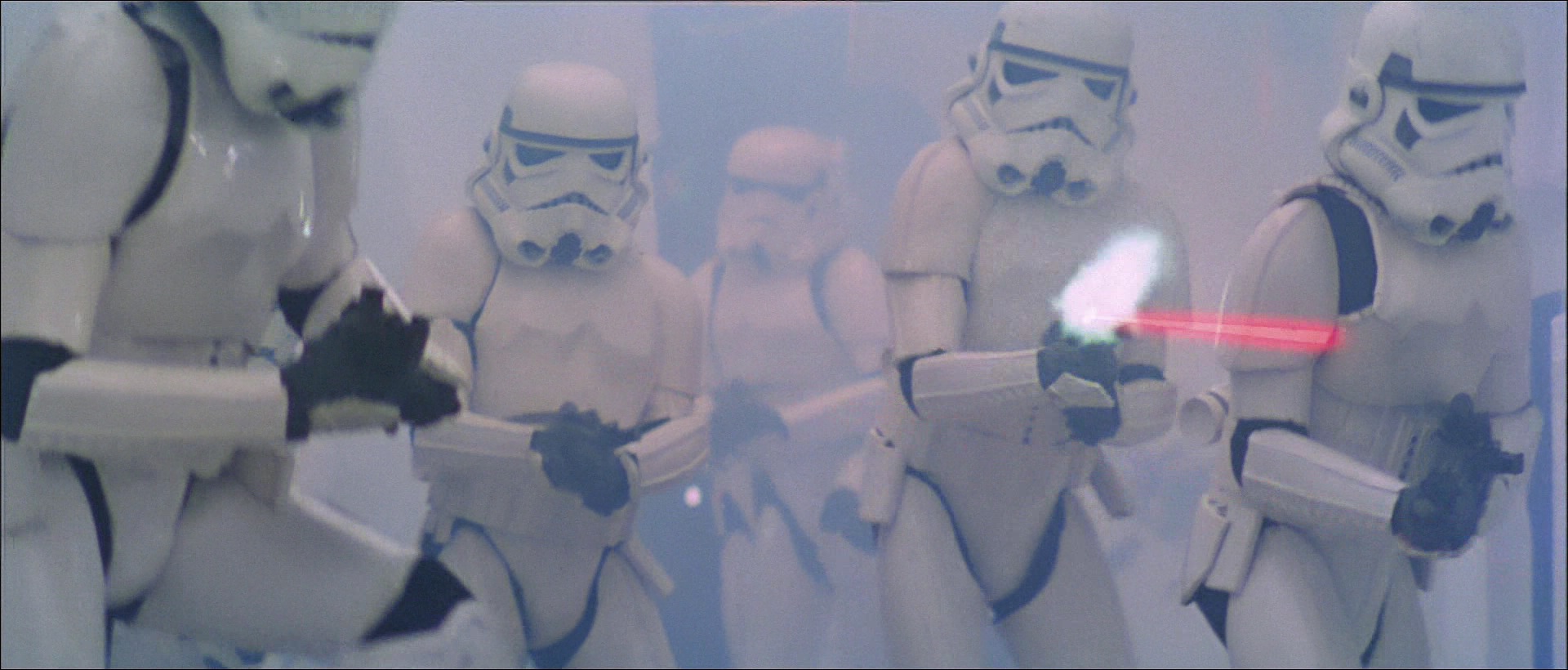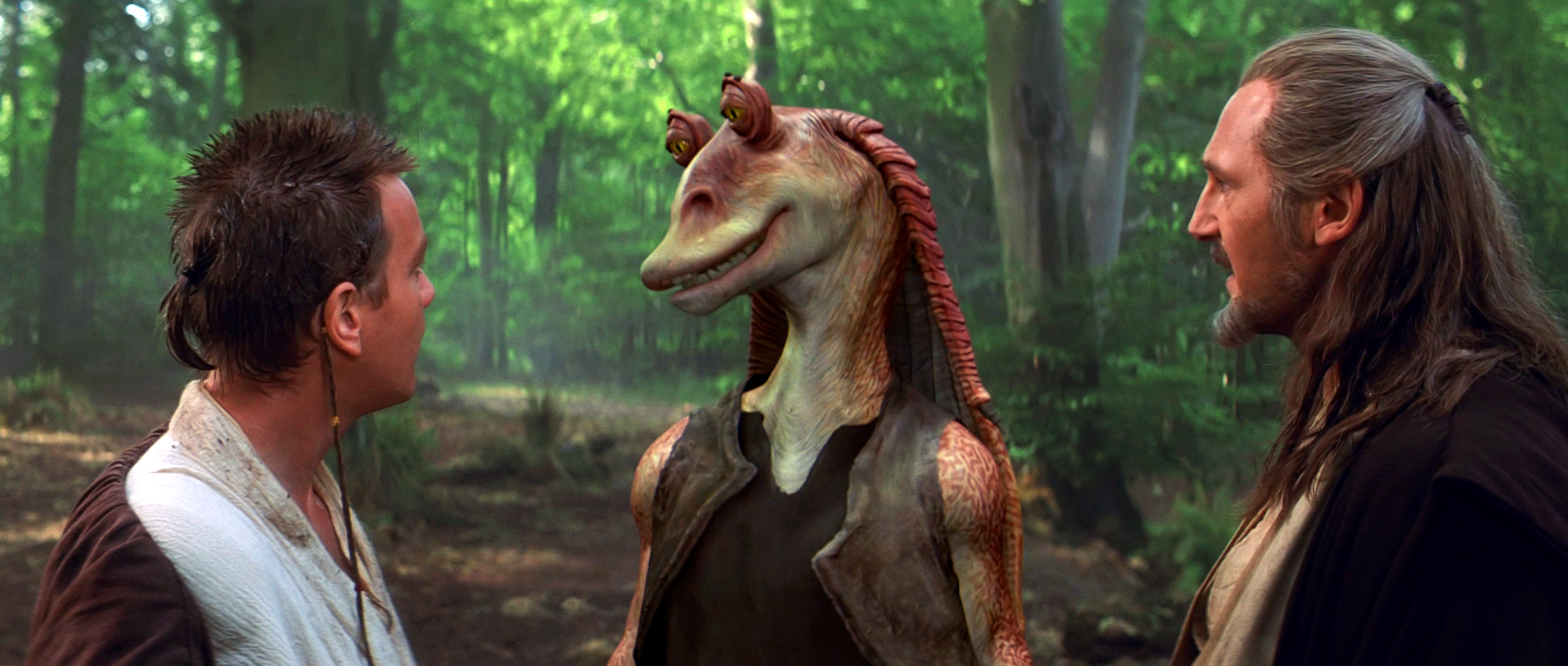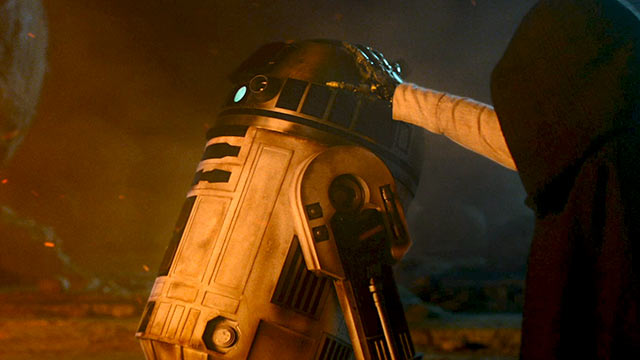My hopes for The Force Awakens are somewhat broader than simply hoping the film is entertaining, or that it ushers in a new era of quality Star Wars live-action content the likes of which hasn’t been seen since 1980. Each Star Wars film, good or bad, has had a considerable impact on not only the pop culture conversation, but on the disposition and direction of the film industry itself. The idea that The Force Awakens will be no different seems a foregone conclusion. My hope, then, is that the resulting shift is a positive one.

New Hollywood was NOT trampled under the jackboots of the Stormtroopers, despite what some critics and historians claim.
Even claiming the Star Wars films were responsible for those shifts in the industry is an oversimplification. The first Star Wars film, in 1977, is often cited as the death knell of the “New Hollywood” era, a period auterists tend to look on as a golden age of cinema, when filmmakers were given the creative freedom to realize their artistic visions without much, if any, studio oversight. Easy Rider, The French Connection, Taxi Driver — even films such as The Exorcist and The Godfather are considered part of this wave of unbridled creativity and artistic freedom. And then, if you believe certain critics, Star Wars came along — a big-budget, crowd-pleasing “popcorn” film of dubious artistic merit — made a ton of money, and ruined everything for the “serious” filmmakers.
![Films like William Friedkin's The French Connection were an example of studios' "hands off" policy during the '70s. [20th Century Fox]](https://toschestation.net/wp-content/uploads/2015/12/French-Connection-Signature-Series-BD_05.jpg)
Films like William Friedkin’s The French Connection were an example of studios’ “hands off” policy during the ’70s. [20th Century Fox]
![Francis Ford Coppola's The Godfather pioneered the now-standard practice of wide release. [Paramount]](https://toschestation.net/wp-content/uploads/2015/12/the-godfather-still-marlon-brando-636-380.jpg)
Francis Ford Coppola’s The Godfather pioneered the now-standard practice of wide release. [Paramount]
So, what are my hopes for The Force Awakens? My hope for The Force Awakens is that it gives me hope for the industry as a whole. Studio films are becoming larger and more unwieldy as time goes on. Blockbusters are all the studios are producing nowadays, at the expense of low or even medium-budget films. Most key, quality has been replaced by spectacle, nuance by noise, character by destruction. Now, a shift away from this is an unrealistic expectation to place on a well-known, highly-anticipated franchise film with a huge special effects budget and owned by one of the largest companies on the planet.
![Films like Man of Steel and Star Trek Into Darkness (pictured) proved that bigger isn't always better. [Paramount]](https://toschestation.net/wp-content/uploads/2015/12/maxresdefault-2.jpg)
Films like Man of Steel and Star Trek Into Darkness (pictured) proved that bigger isn’t always better. [Paramount]
But what if there’s a sign, a hint woven into the fabric of the film, a quality to the movie’s texture — something, anything that might indicate this industry is stepping back from the abyss it finds itself teetering at the edge of? I’m grasping at straws, I’m well aware. But the industry can’t sustain this “bigger is better” business model for much longer. The bubble is going to pop. I’m not claiming the “death of cinema” is on it’s way, but a change is coming. Realistically, it has to be. And what if The Force Awakens is, in some small way, a harbinger of that change?
Star Wars has always been a signpost of things to come. My hope for this film, in a nutshell, is that the signs are good ones.



